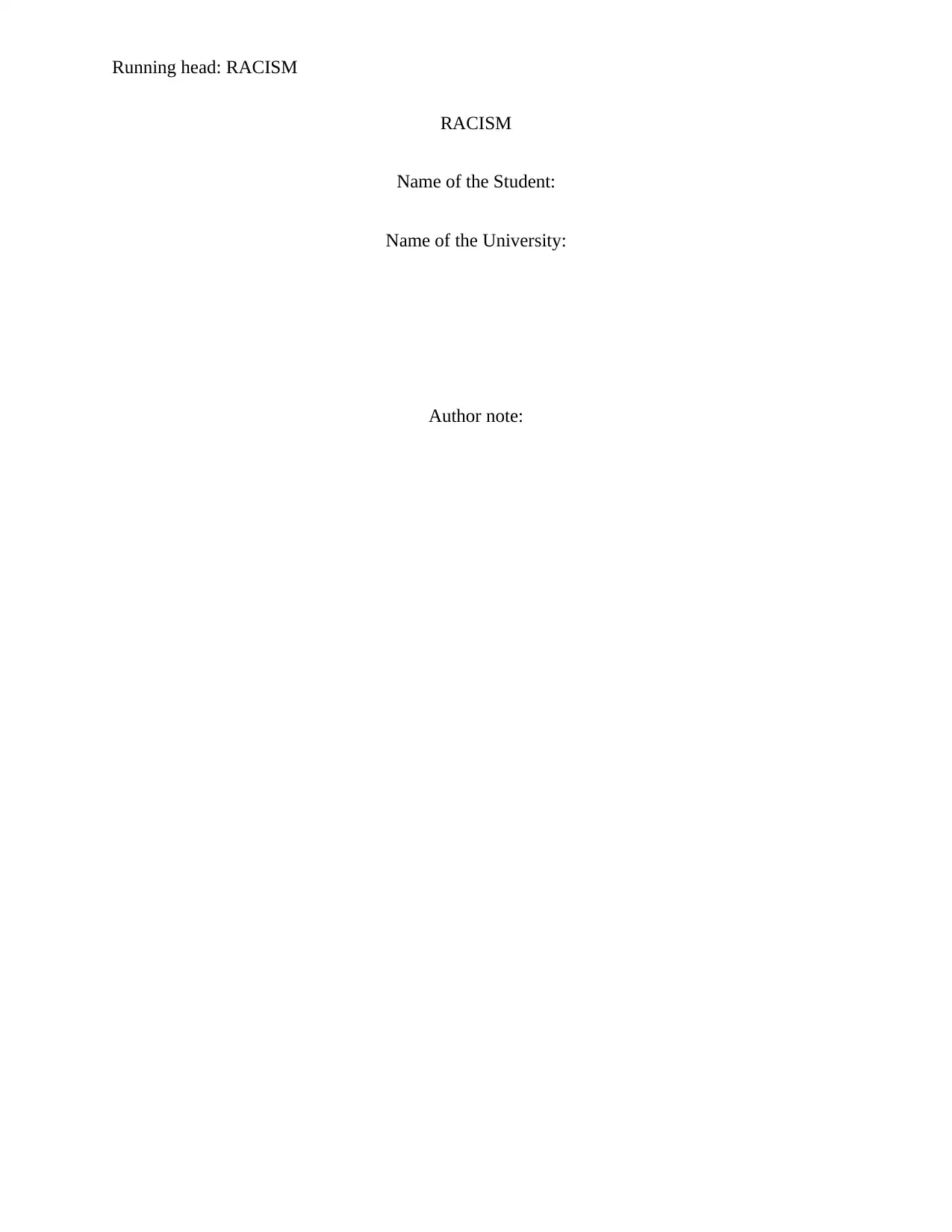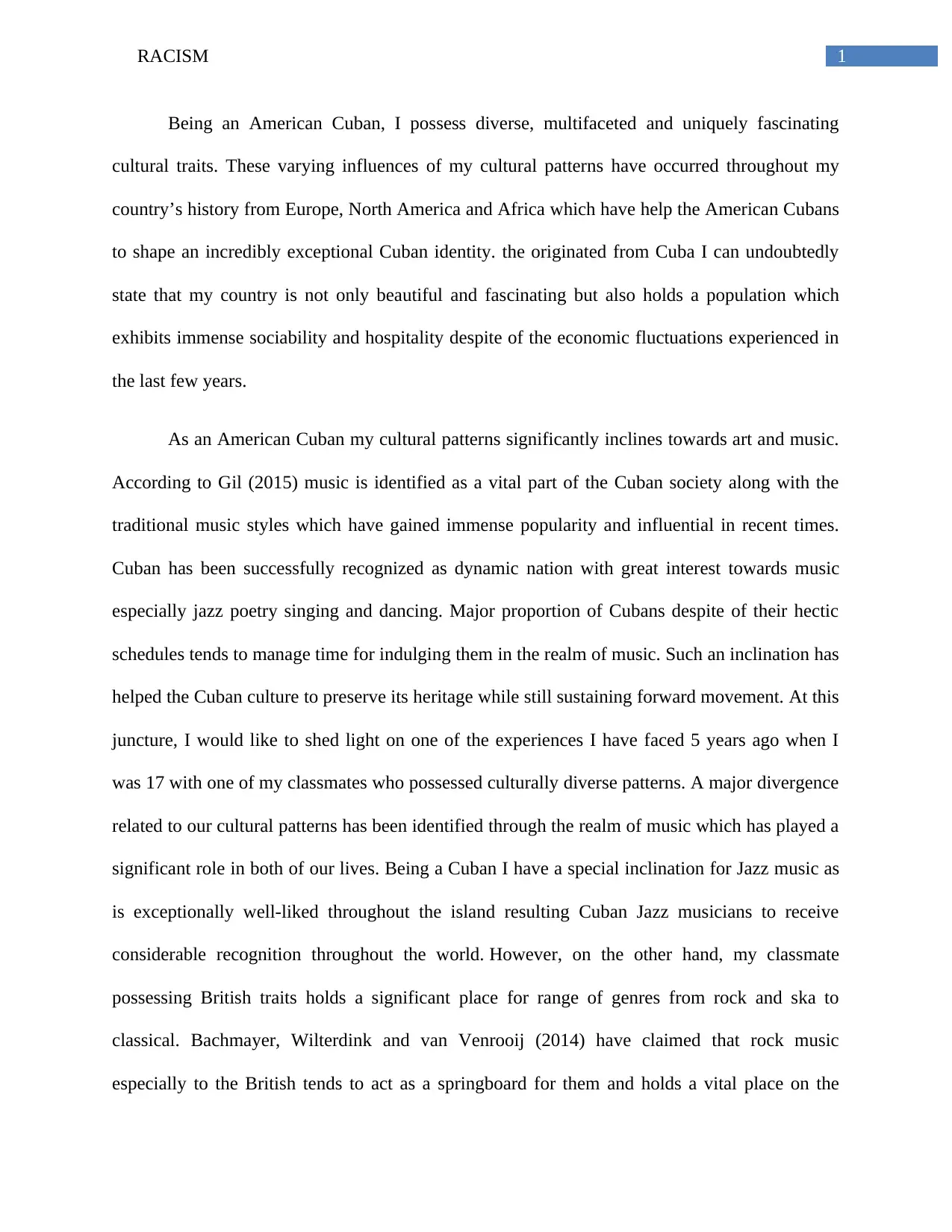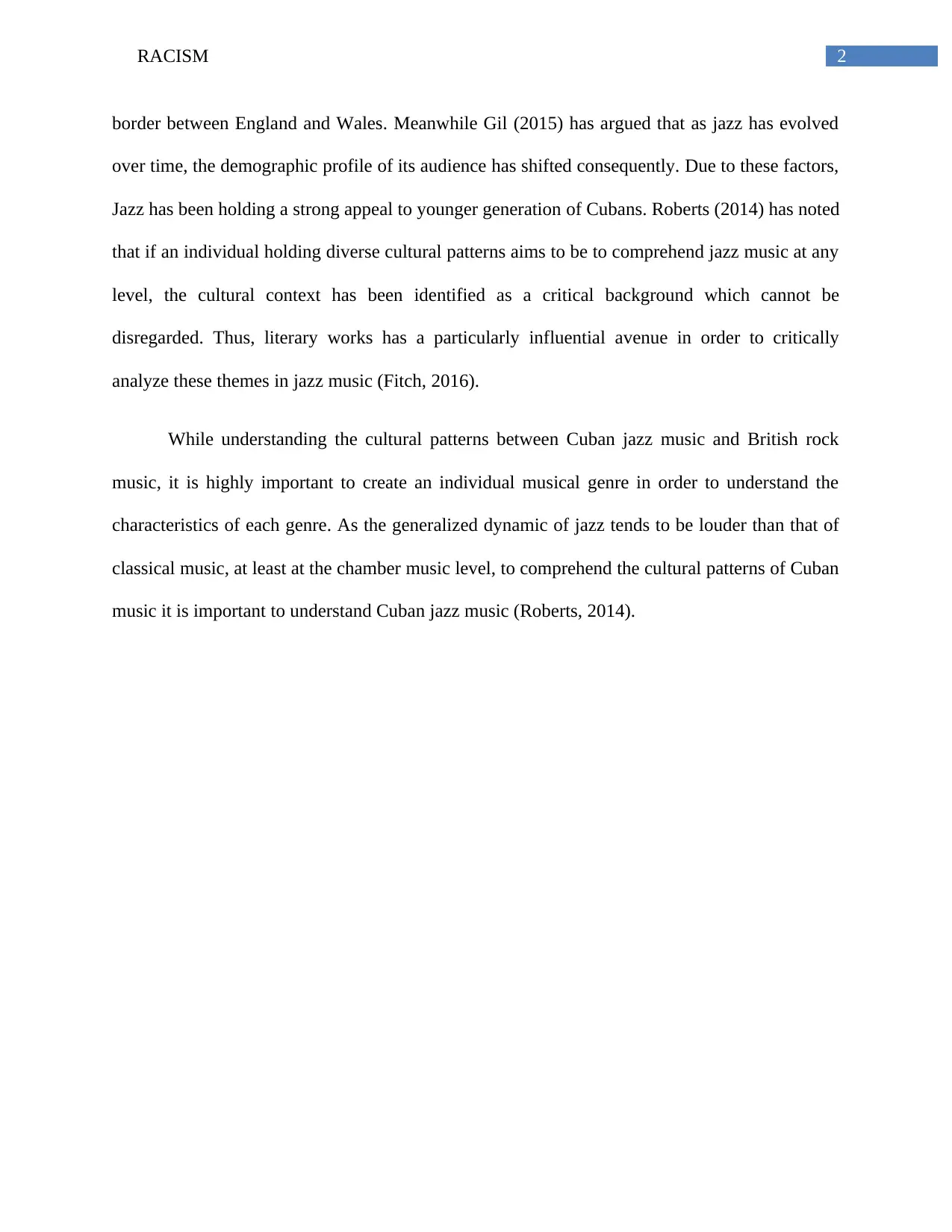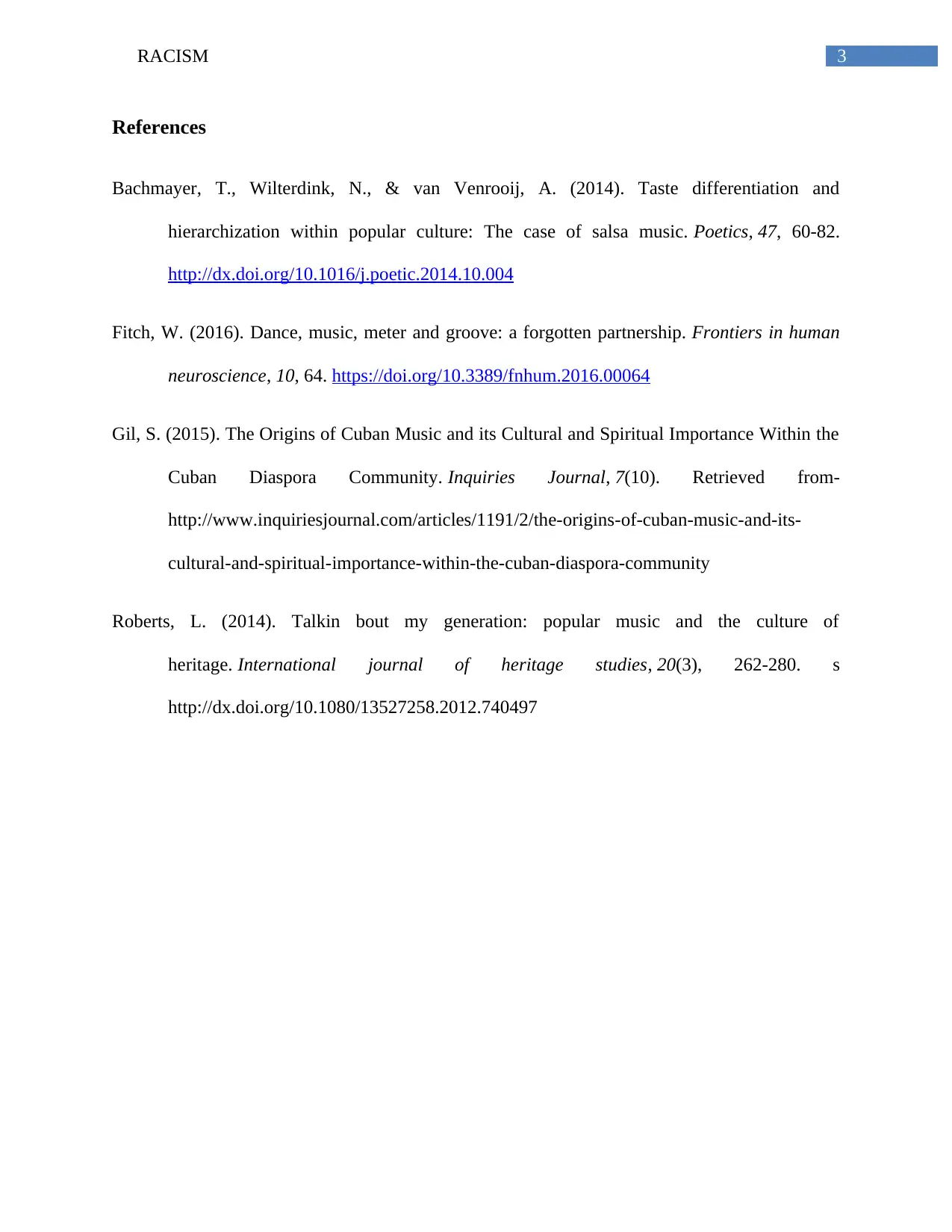Exploring Racism, Cultural Identity, and Musical Influences in Society
VerifiedAdded on 2023/04/22
|4
|717
|206
Essay
AI Summary
This essay, written by an American Cuban student, explores the multifaceted nature of cultural identity and its impact on personal experiences, specifically focusing on racism and musical preferences. The author reflects on their Cuban heritage, highlighting the influence of European, North American, and African cultures in shaping their identity and appreciation for jazz music. The essay contrasts the author's musical preferences with those of a British classmate who favors rock and other genres, illustrating how cultural backgrounds influence individual tastes. It references scholarly works to contextualize the role of music within different cultures, emphasizing the importance of understanding cultural context when analyzing music. The essay discusses the significance of jazz in Cuban culture and the broader appeal of rock music in Britain, providing insights into the dynamics of cultural exchange and the preservation of heritage through music.
1 out of 4





![[object Object]](/_next/static/media/star-bottom.7253800d.svg)